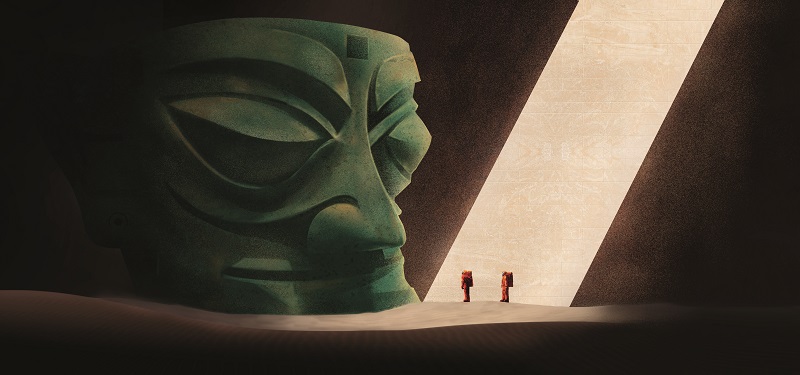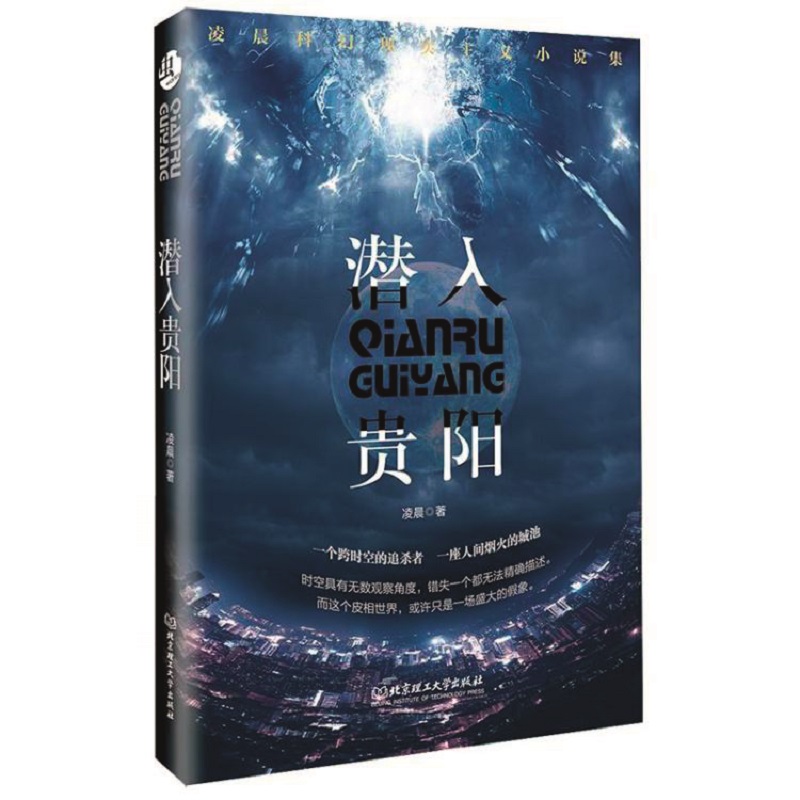A Fantastic Reality

I once wrote a sci-fi novel titled 404: Dragon in the Sky. It depicts a series of incidents after a dragon is spotted in the sky on the eve of the Qingming Festival. After the novel was first published in the magazine Science Fiction World, I received a letter from a reader who argued that a novel about a dragon shouldn’t be categorized as sci-fi. Indeed, dragons are mythical creatures from Chinese legends and have nothing to do with sci-fi. However, a sci-fi writer’s job is precisely to break through mindsets like this. A desire to explore the boundaries of sci-fi and self-cognition fuels my persistent passion and curiosity for writing sci-fi. In that novel, I presented a physical explanation on the emergence of Chinese dragons, created a cat character that was transplanted with an alien’s mind, and depicted astronauts aboard China’s space station enjoying spicy hotpot… I will throw anything into my sci-fi stories because the sci-fi way of thinking has dominated my behavior and become the driving force in my life. It keeps me intimately familiar with scientific and technological advances as well as their influence on social life; It also inspires me to look forward to an innovation- oriented future and observe the present from a macro point of view.
Under my pen, science fiction is neither romantic stories on the cloud nor thrilling adventures, but a reflection on reality from a futuristic perspective.
The dragon depicted in the novel 404: Dragon in the Sky reflects some phenomena in mass communication and online public opinions: The importance of science is weakened by excessive participation in public discourse. The truth is arbitrarily hidden amid the struggle for discourse power.
Thus, my sci-fi creations often merges fantasy with reality—a style I have long pursued. For instance, my short story Platinum Ring focuses on future marriage relations with the population of males much larger than that of females. Although it depicts a projection of tomorrow, I adopted realistic language to narrate the details of daily life. I hoped to foster emotional empathy with the characters in the readers of today through familiar aspects of life. I wanted the short story to read like a piece of news published in newspapers of the future—I read it by accident and chose to present it to readers. Distinguished Guest is about a janitor working in space who receives an invitation letter from the CCTV Spring Festival Gala. Perhaps that will become reality for the gala in 24 years. Wind Ranger tells stories of wind turbine maintenance workers and is like a hymn for laborers. Such works mirror reality and represent my conscious inclination towards sci-fi realism.

Chinese science fiction should tell stories of Chinese people, reflect on Chinese philosophies, and depict how Chinese culture and morality respond to emergencies in the future. The sci-fi blockbuster The Wandering Earth II that recently hit cinemas tells such a story: In the face of imminent crises and existential threats that push mankind to the brink of extinction, China supports a plan to move Earth away from its current solar system. This reflects the innate affection Chinese people have for their motherland.
Chinese culture is inclusive and has long upheld the ideas of “seeking common ground while setting aside differences” and “maintaining harmony in diversity.” China’s vision of building “a community with a shared future for humanity” just mirrors such long-standing ideas. Chinese sci-fi writers should also probe such ideas and pursue the common values of humanity in their works.
Of course, sci-fi novels can showcase fine traditional Chinese culture in ways traditional literature cannot. The genre is based on scientific and technological progress and can only develop with the growing influence of science and technology on human society. Essentially, science fiction reflects on the relationship between mankind and science. Over the past decade, China has witnessed rapid development of science and technology. Sci-fi writers’ imaginations often lag behind the research of scientists and engineers. Moreover, fantastic research findings are becoming reality at breakneck speed. This requires sci-fi writers not only to understand the advancements in science and technology but also to keep up with the latest trends. Sci-fi writers must sprint past scientific and technological advances to envision the future human world.
The world is far from perfect, but I believe it will improve greatly in the future. My mission is to tell stories about the future world to the readers of today.

The author, a celebrated sci-fi writer and playwright, is a member of the China Science Writers Association and the Beijing Writers Association. She has won the Galaxy Awards, China’s top sci-fi honor, several times.